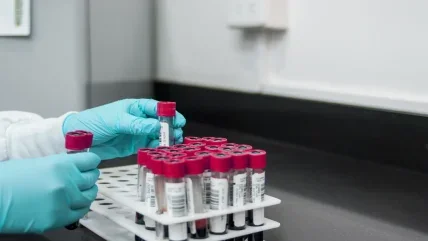
Adaptive Biotechnologies has announced new data showcasing the impact of measurable residual disease (MRD) assessment using its next-generation sequencing-based clonoSEQ test.
clonoSEQ is a US Food and Drug Administration (FDA)-cleared in vitro diagnostic (IVD) test.
It is intended to detect MRD in bone marrow from multiple myeloma (MM) and B-cell acute lymphoblastic leukaemia (B-ALL) patients, and in blood or bone marrow from chronic lymphocytic leukaemia (CLL) patients.
The next-generation sequencing-based clonoSEQ test was assessed in blood cancer clinical care and drug development.
According to the results, the Phase 3 ECOG-ACRIN EA4151 trial data indicated autologous haematopoietic cell transplantation (auto-HCT) offers no added benefit for mantle cell lymphoma (MCL) patients in first complete remission (CR). This finding applies to those with undetectable minimal residual disease (uMRD) at a 10⁻⁶ sensitivity.
Patients in CR with uMRD at 10⁻⁶ sensitivity were randomised to receive either auto-HCT with three years of maintenance rituximab (MR) or MR alone.
An interim analysis, conducted with a median follow-up of 2.7 years, found no significant difference in overall survival (OS) between the two groups.
The clonoSEQ test was also evaluated in the FELIX study.
It showed that achieving deep molecular remission, defined as MRD levels below 10⁻⁶, is associated with improved outcomes in adult patients with relapsed/refractory B-cell acute lymphoblastic leukaemia (B-ALL) treated with obecabtagene autoleucel.
Results indicated that 84% of treatment responders who underwent clonoSEQ MRD testing achieved MRD levels below 10⁻⁶.
This outcome was linked to more durable responses, as well as higher event-free survival (EFS) and OS rates compared to patients with MRD ≥10⁻⁴ and between 10⁻⁴ and 10⁻⁶.
Adaptive Biotechnologies MRD chief commercial officer Susan Bobulsky said: “The breadth of data presented highlight the growing recognition of clonoSEQ as a powerful tool for accelerating patient access to novel therapies, optimising clinical care and delivering actionable insights that improve outcomes for patients living with a variety of blood cancers.”
clonoSEQ is also available as a laboratory-developed test (LDT) for diffuse large B-cell lymphoma (DLBCL) and mantle cell lymphoma (MCL). Additionally, it is CE-marked under the In Vitro Diagnostic Regulation (IVDR) in the European Union (EU).
The test uses Adaptive Biotechnologies’ proprietary immune medicine platform to identify and quantify specific DNA sequences found in malignant cells.
This allows clinicians to monitor disease progression, assess treatment response, predict patient outcomes, detect potential relapse, and make informed therapy adjustments.






